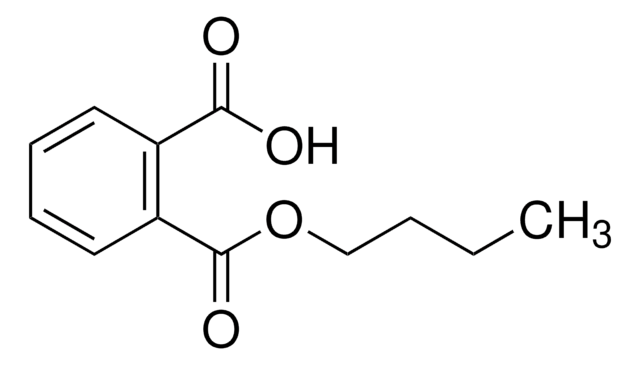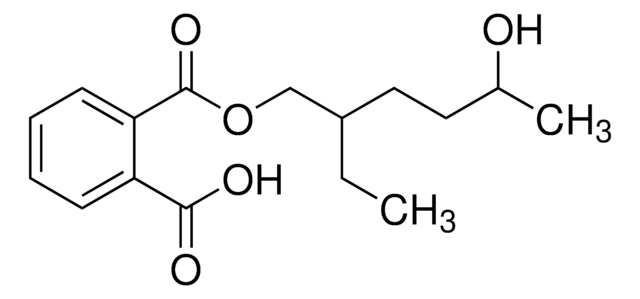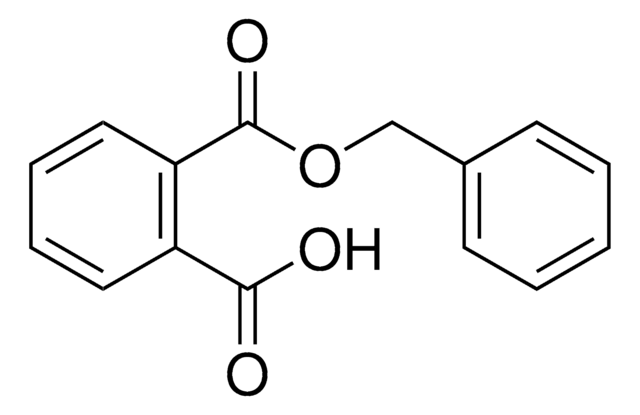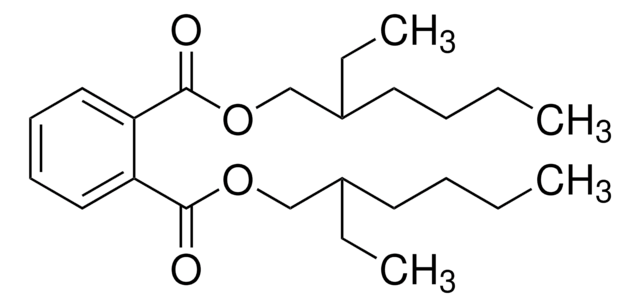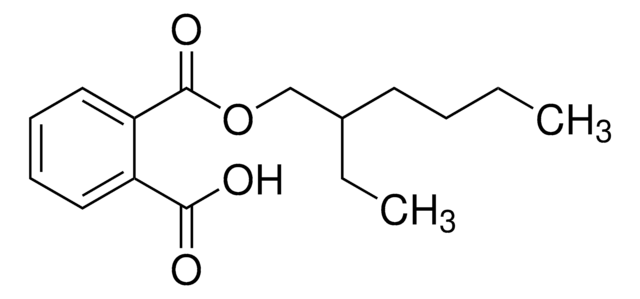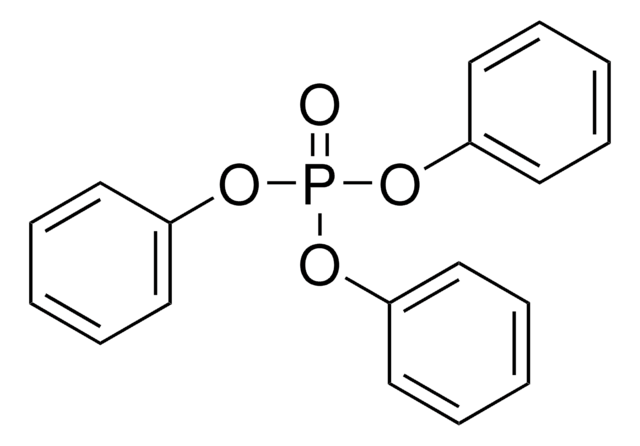36926
mono-Methyl phthalate
analytical standard
Synonyme(s) :
Monomethyl phthalate
About This Item
Produits recommandés
Qualité
analytical standard
Niveau de qualité
Durée de conservation
limited shelf life, expiry date on the label
Technique(s)
HPLC: suitable
gas chromatography (GC): suitable
Pf
82-84 °C (lit.)
Application(s)
cleaning products
cosmetics
environmental
food and beverages
personal care
Format
neat
Chaîne SMILES
COC(=O)c1ccccc1C(O)=O
InChI
1S/C9H8O4/c1-13-9(12)7-5-3-2-4-6(7)8(10)11/h2-5H,1H3,(H,10,11)
Clé InChI
FNJSWIPFHMKRAT-UHFFFAOYSA-N
Vous recherchez des produits similaires ? Visite Guide de comparaison des produits
Description générale
Application
Produits recommandés
Code de la classe de stockage
11 - Combustible Solids
Classe de danger pour l'eau (WGK)
WGK 3
Point d'éclair (°F)
Not applicable
Point d'éclair (°C)
Not applicable
Équipement de protection individuelle
dust mask type N95 (US), Eyeshields, Gloves
Faites votre choix parmi les versions les plus récentes :
Certificats d'analyse (COA)
Vous ne trouvez pas la bonne version ?
Si vous avez besoin d'une version particulière, vous pouvez rechercher un certificat spécifique par le numéro de lot.
Déjà en possession de ce produit ?
Retrouvez la documentation relative aux produits que vous avez récemment achetés dans la Bibliothèque de documents.
Notre équipe de scientifiques dispose d'une expérience dans tous les secteurs de la recherche, notamment en sciences de la vie, science des matériaux, synthèse chimique, chromatographie, analyse et dans de nombreux autres domaines..
Contacter notre Service technique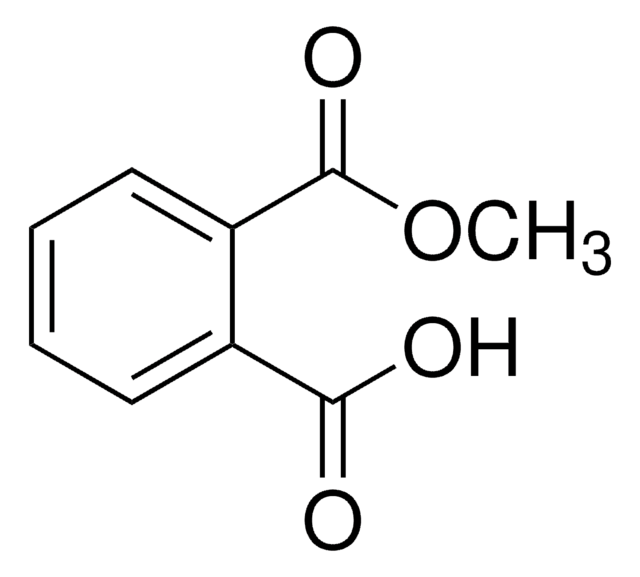
![mono-[(2RS)-2-Ethyl-5-oxohexyl] phthalate analytical standard](/deepweb/assets/sigmaaldrich/product/structures/380/975/47f8fcbc-594c-4f9c-84df-43685552cd06/640/47f8fcbc-594c-4f9c-84df-43685552cd06.png)
